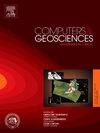油藏水平井布井优化的自适应约束引导替代增强进化算法
IF 4.4
2区 地球科学
Q1 COMPUTER SCIENCE, INTERDISCIPLINARY APPLICATIONS
引用次数: 0
摘要
面对不断增长的全球能源需求,本研究介绍了一种自适应约束引导替代增强进化算法(ACG-EBS),用于优化油藏中的水平井布置。为了应对石油产量最大化这一复杂挑战,ACG-EBS 将地质、工程和经济因素整合到一个新颖的优化框架中。该算法的突出之处在于,它能在复杂而离散的水平井布置决策空间中巧妙地进行导航,而传统方法在这一领域往往会遇到挑战。主要创新包括自适应约束初始化机制(ACIM)和进化约束裁剪候选方案完善策略(ECTCR),它们共同提高了候选方案的可行性。增强型平衡策略协调了综合模型和利基代用模型,优化了探索与开发之间的平衡。通过对二维和三维储层模型的测试,ACG-EBS 在确定符合油田部署实际情况的最佳井位和实现经济回报最大化方面被证明是非常有效的。这一贡献极大地支持了油田开发优化的不断发展,展示了该算法在提高石油产量和经济效益方面的潜力。本文章由计算机程序翻译,如有差异,请以英文原文为准。
Adaptive constraint-guided surrogate enhanced evolutionary algorithm for horizontal well placement optimization in oil reservoir
In the face of escalating global energy demands, this study introduces an Adaptive Constraint-Guided Surrogate Enhanced Evolutionary Algorithm (ACG-EBS) for optimizing horizontal well placements in oil reservoirs. Addressing the complex challenge of maximizing oil production, the ACG-EBS integrates geological, engineering, and economic considerations into a novel optimization framework. This algorithm stands out for its adept navigation through a complex and discrete decision space of horizontal well placements, an area where traditional methods often encounter challenges. Key innovations include the Adaptive Constraint Initialization Mechanism (ACIM) and the Evolutionary Constraint-Tailored Candidate Refinement strategy (ECTCR), which collectively elevate the feasibility of candidate solutions. An enhanced balance strategy harmonizes comprehensive and niche surrogate models, optimizing the balance between exploration and exploitation. Through testing on both two-dimensional and three-dimensional reservoir models, the ACG-EBS has proven highly effective in identifying optimal well placements that align with field deployment realities and maximize economic returns. This contribution significantly supports the ongoing evolution of oilfield development optimization, showcasing the algorithm's potential to enhance oil production and economic outcomes.
求助全文
通过发布文献求助,成功后即可免费获取论文全文。
去求助
来源期刊

Computers & Geosciences
地学-地球科学综合
CiteScore
9.30
自引率
6.80%
发文量
164
审稿时长
3.4 months
期刊介绍:
Computers & Geosciences publishes high impact, original research at the interface between Computer Sciences and Geosciences. Publications should apply modern computer science paradigms, whether computational or informatics-based, to address problems in the geosciences.
 求助内容:
求助内容: 应助结果提醒方式:
应助结果提醒方式:


